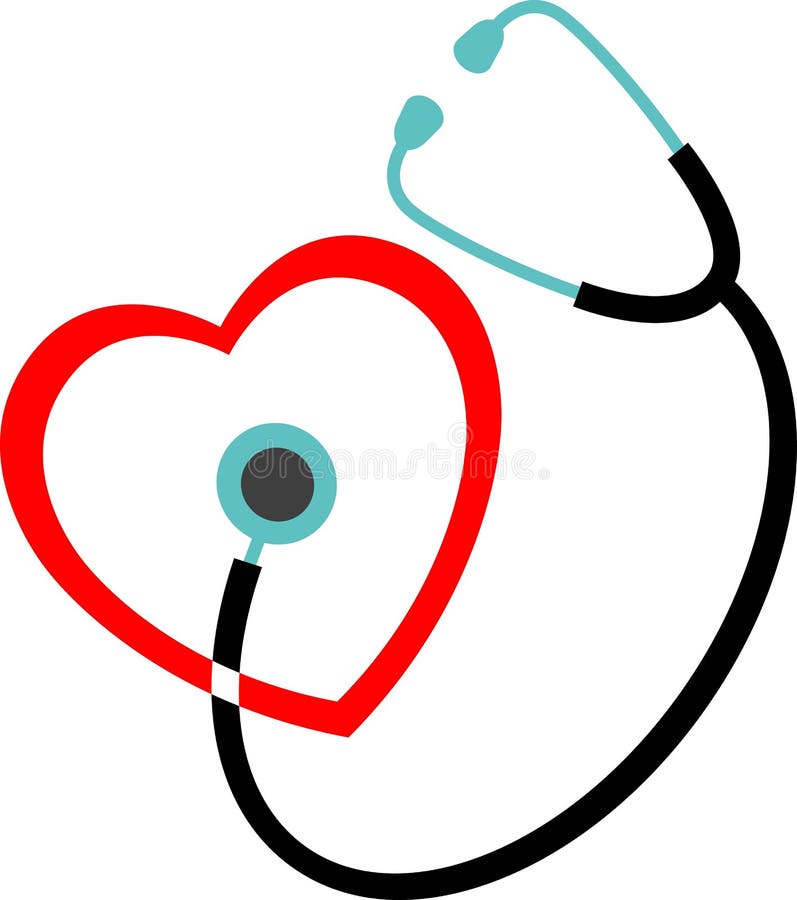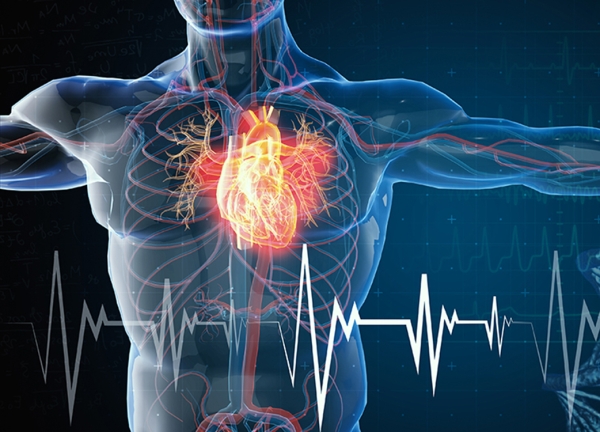The evolving science of Cardiology and its real-world benefits
The evolving science of Cardiology and its real-world benefits
Blog Article
Comprehending the Relevance of Cardiology in Modern Health Care Providers
Cardiology plays a critical function in modern-day health care, especially as heart illness proceeds to be the leading source of mortality worldwide. Advancements in diagnostics and treatment have actually changed individual treatment, making it possible for earlier interventions and enhanced end results. The change towards precautionary cardiology empowers people to handle their health proactively. As innovation continues to develop, the assimilation of innovative remedies may better redefine cardiology's effect on public health and wellness, motivating a better assessment of emerging patterns and their ramifications.
The Occurrence of Cardiovascular Disease and Its Influence On Public Health And Wellness
Heart disease remains the leading reason of death internationally, its effect extends much beyond private people to influence public wellness systems and economies. The high frequency of heart disease positions a considerable stress on medical care sources, demanding raised funding for therapy, avoidance, and rehabilitation programs. Public health and wellness initiatives should resolve risk factors such as weight problems, smoking, and inactive way of livings, which add greatly to the climbing incidence of heart conditions.Moreover, the financial worry connected with heart problem is enormous, incorporating not just straight clinical costs however likewise indirect expenses connected to shed productivity and early mortality. Areas face obstacles in managing these expenses, commonly resulting in variations in healthcare gain access to and results. As the population ages and lifestyle-related risks remain to escalate, the seriousness for reliable cardiology interventions ends up being paramount. Dealing with heart disease is not just a matter of private health and wellness however additionally a crucial public health top priority.
Advancements in Heart Diagnostics and Imaging Techniques
Current improvements in heart diagnostics and imaging methods have actually transformed the field of cardiology, boosting the ability to keep track of and detect cardiovascular disease. Methods such as cardiac MRI, CT angiography, and echocardiography have ended up being increasingly sophisticated, supplying detailed images of heart structures and functions. These methods permit for the very early recognition of problems like coronary artery condition, cardiac arrest, and valvular disorders.Moreover, innovations in non-invasive diagnostics, such as wearable technology and remote tracking gadgets, have actually equipped patients and doctor. These devices promote real-time monitoring of heart rhythms and other important indications, causing timely interventions. Furthermore, artificial intelligence is being incorporated right into imaging analysis, improving precision and performance in diagnosis.
Advancements in Therapy Alternatives for Heart Conditions
Current advancements in cardiology have led to significant developments in therapy options for heart conditions. These include sophisticated medical techniques that improve procedural end results and arising medications that supply brand-new methods for treatment. As the area evolves, these innovations play a vital role in boosting individual treatment and results.
Advanced Surgical Techniques
Innovations in surgical techniques have actually transformed the landscape of cardiology, using new hope for clients with heart disease. Minimally invasive procedures, such as catheter-based interventions, have actually significantly reduced healing times and hospital remains. Strategies like robotic-assisted surgery improve accuracy, allowing specialists to navigate intricate physiological frameworks with higher precision. Innovations in imaging technology assist in real-time visualization during procedures, improving results. Transcatheter aortic shutoff substitute (TAVR) exemplifies an innovation in dealing with aortic stenosis, enabling valve substitute without open-heart surgery. Furthermore, hybrid techniques that incorporate surgical and catheter-based approaches supply customized services for various heart concerns. These advanced surgical methods not only enhance patient safety however also expand treatment choices, emphasizing the essential duty of innovation in modern-day cardiology practices.
Arising Drugs and Treatments
As the landscape of cardiology remains to progress, emerging treatments and drugs play a pivotal role in improving treatment options for heart disease. Innovations such as unique anticoagulants and progressed lipid-lowering representatives have actually transformed the management of cardiovascular illness, significantly minimizing client morbidity and death. Additionally, the development of genetics therapies and regenerative medicine provides encouraging methods for treating conditions formerly considered incurable. Scientific tests are consistently exposing the efficacy of these therapies, pressing the limits of typical treatments. In addition, the combination of electronic health modern technologies facilitates personalized medication, enabling tailored therapy plans based upon genetic and way of life factors. Jointly, these innovations emphasize the vibrant nature of cardiology, enhancing individual outcomes and redefining criteria of care in modern-day health care.
The Duty of Preventive Cardiology in Individual Treatment
Preventive cardiology plays a vital function in patient treatment by concentrating on the recognition of risk aspects that contribute to cardiovascular disease. Through way of living modification strategies and early detection techniques, health care service providers can efficiently decrease the incidence of cardiovascular events - Cardiology care. This proactive technique not just boosts patient results but also advertises lasting wellness
Risk Aspect Recognition
While cardio diseases continue to be a leading reason for morbidity and mortality worldwide, reliable threat aspect identification functions as a foundation of preventative cardiology. Identifying threat variables such as high blood pressure, household, diabetes mellitus, and hyperlipidemia history is vital for very early treatment. Medical care specialists make use of numerous screening techniques to examine these variables, permitting for tailored safety nets. Furthermore, understanding a patient's way of living choices, such as cigarette smoking and physical inactivity, further educates threat assessments. This thorough evaluation allows medical professionals to develop individualized care plans focused on mitigating threats. By focusing on danger element recognition, medical care systems can enhance client end results and minimize the general problem of cardio conditions, ultimately adding to boosted public wellness methods and resource allowance.
Way Of Living Modification Strategies
A wide variety of researches highlights the important function of way of living alteration methods in lowering heart disease risk. These techniques encompass dietary adjustments, enhanced physical task, smoking cigarettes cessation, and weight administration. By taking on a heart-healthy diet abundant in fruits, vegetables, whole grains, and lean proteins, people can lower cholesterol levels and blood pressure. Regular physical task reinforces the heart and boosts overall cardiovascular health. In addition, quitting smoking cigarettes considerably decreases the danger of cardiovascular disease and improves recuperation rates for those with status quo. Weight monitoring further adds to cardio health by mitigating other danger factors such as diabetic issues and high blood pressure. Executing these lifestyle changes not only advertises individual health but additionally acts as a foundation of precautionary cardiology in person care.
Very Early Detection Strategies
Lifestyle alterations significantly add to minimizing cardiovascular condition risks, yet they are most reliable when coupled with early discovery strategies. Preventative cardiology highlights the value of recognizing possible heart issues prior to they escalate right into significant conditions. Techniques such as blood pressure surveillance, cholesterol screening, and progressed imaging technologies like echocardiograms play vital functions in evaluating cardio health and wellness. Biomarkers and hereditary screening likewise boost the accuracy of very early detection, allowing for tailored preventative approaches. Regular cardiac risk examinations empower health care providers to intervene proactively, potentially protecting against cardiovascular disease and strokes (Cardiology Jupiter). By integrating these very early discovery methods right into regular care, people can take advantage of timely lifestyle interventions and targeted therapies, inevitably enhancing outcomes and improving lifestyle
Integrating Modern Technology Into Cardiology Practices
As advancements in technology remain to improve different areas, the combination of innovative tools and systems right into cardiology techniques has actually ended up being crucial for improving patient treatment and results. Telemedicine systems permit cardiologists to keep track of clients from another location, enhancing access to care while decreasing the worry on healthcare centers. Wearable tools, such as smartwatches, allow continuous heart rate surveillance, notifying both doctors and patients to potential concerns in real-time. Furthermore, expert system (AI) is being utilized to analyze large amounts of cardiac data, helping in early diagnosis and personalized treatment plans. Advanced imaging methods, including 3D echocardiography, boost visualization of heart structures, resulting in a lot more precise interventions. Electronic health and wellness documents (EHRs) streamline client information administration, making certain that cardiologists have instant accessibility to vital data. Together, these technological innovations are changing cardiology, promoting proactive management and enhanced health and wellness results for patients with cardiovascular problems.
The Significance of Individual Education And Learning and Interaction
Person education and learning and involvement play a pivotal role in the management of cardiovascular wellness. By gearing up patients with understanding regarding their conditions, therapy options, and lifestyle adjustments, health care service providers encourage individuals to take an energetic duty in their care. This aggressive strategy can lead to enhanced adherence to suggested medications, dietary modifications, and exercise regimens, ultimately reducing the threat of complications.Engagement also fosters a solid patient-provider partnership, motivating open interaction and count on. When clients really feel educated and involved, they are more probable to voice issues and ask questions, which can bring about much better clinical results. In addition, instructional resources, such as workshops or electronic platforms, my sources can boost understanding and advertise self-management methods. Overall, prioritizing click over here client education and involvement is necessary for boosting cardiovascular health, improving high quality of life, and minimizing health care expenses associated with cardio illness.
Future Fads in Cardiology and Their Possible Influence

Frequently Asked Inquiries
What Way Of Living Modifications Can Lower Heart Condition Danger?
The existing inquiry addresses way of life modifications that can greatly reduce cardiovascular disease risk. Cardiology Jupiter. Adopting a balanced diet plan, engaging in routine exercise, maintaining a healthy and balanced weight, handling tension, and staying clear of cigarette can especially improve cardio health and wellness
Exactly How Can I Identify Early Signs of Heart Problems?
Acknowledging early indications of heart issues involves monitoring signs such as chest discomfort, lack of breath, fatigue, and uneven heartbeat. Prompt awareness of these signs can motivate necessary medical analysis and intervention for far better results.
What Are the Differences In Between Cardiologists and Heart Surgeons?
The distinctions between cardiologists and cardiac specialists hinge on their duties; cardiologists mainly diagnose and manage heart disease via non-invasive approaches, while heart doctors execute medical treatments to deal with structural heart issues. Each plays an important, distinct function.

Just how Typically Should I Obtain My Heart Wellness Checked?
The frequency of heart checkup varies based on individual threat variables. Generally, adults must undertake evaluations every one to 2 years, while those with status quo might require more constant evaluations as advised by health care professionals.
What Function Does Genetics Play in Cardiovascular Disease Risk?
Genetics significantly affects cardiovascular disease threat, with familial patterns showing inherited conditions. Certain genes can predispose individuals to high blood pressure, cholesterol problems, and other cardiovascular problems, highlighting the relevance of hereditary testing in reviewing heart health and wellness. Heart disease continues to be the leading reason of fatality around the world, its influence prolongs far beyond private clients see here now to impact public health systems and economic climates. Public health efforts must resolve threat variables such as excessive weight, smoking cigarettes, and sedentary way of lives, which add considerably to the increasing occurrence of heart conditions.Moreover, the financial burden connected with heart condition is enormous, encompassing not only direct medical expenses yet additionally indirect expenses related to shed productivity and early death. Preventative cardiology plays a necessary duty in person treatment by focusing on the identification of threat elements that add to heart illness. Artificial knowledge (AI) and device understanding are boosting diagnostics and patient surveillance, making it possible for early detection of heart diseases. The differences in between cardiologists and heart cosmetic surgeons exist in their functions; cardiologists mainly manage and diagnose heart problems through non-invasive methods, while heart surgeons carry out surgical treatments to correct structural heart problems.
Report this page